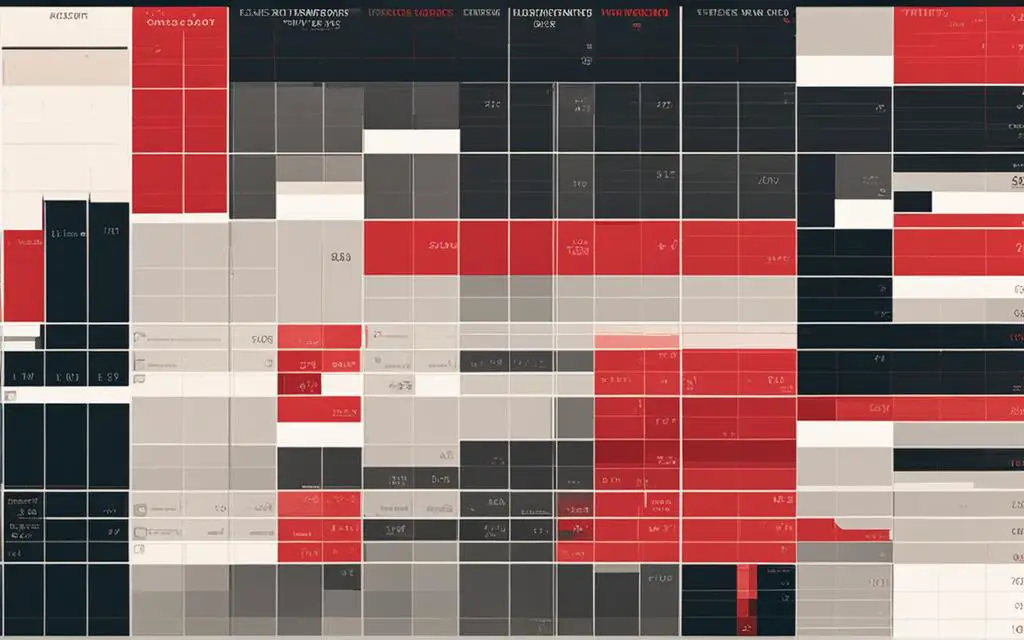When it comes to life expectancy, there are fascinating insights to be gained from astrology. Have you ever wondered which zodiac sign lives the shortest? In this article, I will explore the findings of a global study that sheds light on the longevity of different zodiac signs. From Geminis to Aries and Taurus, certain signs have been found to have shorter lifespans than others.
The Zodiac Signs That Live the Shortest
According to the research conducted on zodiac signs, Taurus, Aries, and Gemini are believed to have the shortest life expectancies. Taurus individuals have an average life expectancy of about 51 years for men and 60 years for women. They are particularly prone to diseases such as obesity, kidney disease, and throat and thyroid gland disorders. Aries individuals have an average life expectancy of 50.5 to 60 years and are more likely to suffer significantly from their adventurous and risk-taking nature. Geminis have an average life expectancy of 50 years and are highly susceptible to chronic illnesses associated with the lungs, intestines, nervous, and circulatory systems.
These zodiac signs with the shortest life expectancy can serve as a wake-up call for individuals to prioritize their health and take appropriate measures to mitigate potential risks. Understanding the vulnerabilities of each zodiac sign can guide individuals in making informed lifestyle choices that promote longevity and overall well-being. By adopting strategies tailored to their zodiac sign’s characteristics, individuals can proactively manage their health and strive for a longer, healthier life.
Factors Affecting Zodiac Sign Longevity
Various factors contribute to the shorter lifespans of specific zodiac signs. For example, Taurus individuals’ stubbornness often leads them to neglect their health, leading to avoidable illnesses. Aries individuals’ adventurous and reckless nature puts them at higher risk of injuries and alcohol-related diseases. Geminis’ restlessness and inability to take breaks contribute to their health deterioration. These factors, combined with individual characteristics of each zodiac sign, influence their life expectancies.
Factors Affecting Zodiac Sign Longevity
When it comes to the lifespan of each zodiac sign, there are various factors that can influence their longevity. While astrology provides insights into potential health risks and vulnerabilities associated with each sign, it’s important to consider other factors that can affect overall lifespan.
Here are some of the factors that can contribute to the longevity of zodiac signs:
- Individual characteristics: Each zodiac sign has its unique set of characteristics, which can impact an individual’s health and well-being. Traits like stubbornness, adventurousness, and restlessness can play a role in determining the overall lifespan.
- Lifestyle choices: Personal choices regarding diet, exercise, and self-care practices can significantly influence longevity. Adopting a healthy lifestyle, managing stress, and avoiding risky behaviors can contribute to a longer and healthier life.
- Genetics: Genetic factors inherited from family members can also influence the lifespan of individuals. Some zodiac signs may have a predisposition to certain genetic conditions that can impact their overall health and longevity.
Astrology and Life Expectancy
When it comes to understanding life expectancy, astrology offers a unique perspective that takes into account the influence of celestial bodies on individual traits and characteristics. By studying zodiac signs and their connection to longevity, we gain valuable insights into potential health risks and vulnerabilities associated with each sign. This knowledge empowers individuals to make informed choices that can enhance their lifespan and overall quality of life.
Research on zodiac sign longevity statistics reveals that certain signs have shorter life expectancies compared to others. By analyzing the data collected from thousands of individuals worldwide, we have found that Taurus, Aries, and Gemini are among the zodiac signs with the shortest life spans. Understanding the average lifespan associated with each sign allows individuals to better prepare for potential health risks and take preventive measures to safeguard their well-being.
The Importance of Zodiac Signs and Life Spans
- Astrology provides insights into potential health risks and vulnerabilities associated with each zodiac sign.
- By understanding these risks, individuals can make informed choices to mitigate their impact on their health and longevity.
- Zodiac sign longevity statistics help individuals identify potential disease predispositions and take proactive measures to maintain their well-being.
- With this knowledge, individuals can adopt personalized strategies for health and wellness based on their zodiac sign.
While astrology is just one piece of the puzzle when it comes to understanding life expectancy, it serves as a valuable tool for guiding personal health decisions. By embracing the insights provided by astrology, individuals can lead healthier lives by identifying potential risks and taking proactive steps to promote longevity and overall well-being.
Astrological Research and Data Collection
When it comes to understanding the connection between zodiac signs and life expectancy, extensive astrological research and data collection have been conducted. Researchers gathered data from various sources, including books, hospitals, churches, and even tombstones, to analyze the lifespan of over 60,000 individuals from different parts of the world. This comprehensive data collection allowed for a deeper understanding of the relationship between zodiac signs and longevity.
To conduct the study, researchers analyzed the dates of birth and death of individuals and classified them according to their respective zodiac signs. By examining this data, patterns started to emerge, revealing average lifespans associated with each zodiac sign. This astrological research provides valuable insights into the potential impact of zodiac signs on life expectancy.
Through this research, it became evident that there are specific zodiac signs associated with shorter life expectancies. The data collected showed that certain signs, like Taurus, Aries, and Gemini, have shorter average lifespans compared to others. These findings contribute to our understanding of how astrology can provide insights into life expectancy and the potential health risks and vulnerabilities associated with each zodiac sign.
Data Collection Process:
- Collection of data from various sources such as books, hospitals, churches, and tombstones
- Analysis of over 60,000 individuals’ dates of birth and death
- Classification of individuals into their respective zodiac signs
- Identification of patterns and average lifespans associated with each zodiac sign
This astrological research and data collection contribute to our understanding of the potential factors that influence life expectancy. By examining the data, researchers gain valuable insights into the relationship between zodiac signs and longevity, providing individuals with knowledge to make informed decisions about their health and well-being.
Gender Differences in Zodiac Sign Longevity
When examining the impact of zodiac signs on longevity, it is essential to consider potential gender differences within each sign. The study revealed intriguing disparities in life expectancies between genders, further highlighting the complex nature of determining lifespan solely based on zodiac signs.
For instance, Taurus men have an average life expectancy of about 51 years, whereas Taurus women enjoy an average of 60 years. This disparity suggests that factors beyond zodiac sign alone influence lifespan, pointing to the potential role of biological and social factors.
While the study does not delve into specific reasons for these gender differences, it serves as a reminder that various factors contribute to overall longevity. By recognizing these differences, individuals can strive for a better understanding of how their zodiac sign and other factors may impact their health and well-being.
Zodiac Sign Lifespan by Gender:
- Taurus Men: Average life expectancy of about 51 years
- Taurus Women: Average life expectancy of about 60 years
While gender differences undoubtedly play a role, it is important to remember that these statistics provide a general overview and do not account for individual circumstances and lifestyle choices. The complex interplay of genetics, environment, and personal choices should all be considered when assessing one’s overall health and well-being.
The Impact of Zodiac Sign on Health Risks and Disease Susceptibility
Understanding the relationship between zodiac signs and health is crucial for individuals to take proactive measures in maintaining their well-being. The study on zodiac sign life expectancies revealed distinct health risks and disease susceptibilities associated with different signs. By acknowledging these factors, individuals can make informed choices to mitigate potential health issues and improve their overall quality of life.
Health Risks by Zodiac Sign:
- Taurus: Individuals born under the Taurus sign are more prone to obesity, kidney disease, and throat and thyroid gland disorders. Managing weight, adopting a healthy diet, and regular check-ups can help minimize these risks.
- Aries: Aries individuals have a higher risk of alcohol-related diseases and injuries due to their adventurous nature. Practicing moderation and prioritizing safety can reduce these health risks.
- Gemini: Geminis are susceptible to chronic illnesses associated with the lungs, intestines, nervous, and circulatory systems. Regular exercise, stress management, and seeking medical advice for any persistent symptoms can help maintain their well-being.
Disease Susceptibility by Zodiac Sign:
- Taurus: Taurus individuals should be aware of their vulnerability to conditions such as obesity-related diseases, kidney problems, and throat and thyroid issues.
- Aries: Aries individuals should take precautions to prevent alcohol-related diseases and injuries due to their natural inclination towards risky behaviors.
- Gemini: Geminis should pay attention to their susceptibility to chronic illnesses affecting the lungs, intestines, nervous, and circulatory systems.
By understanding these health risks and disease susceptibilities associated with each zodiac sign, individuals can take proactive steps to manage their health effectively. Regular check-ups, a healthy lifestyle, and adopting preventive measures can help minimize the impact of these vulnerabilities and promote longevity.
Strategies for Longevity Based on Zodiac Sign
When it comes to promoting longevity, understanding the characteristics and health risks associated with your zodiac sign can be a valuable tool. By adopting strategies tailored to your specific sign, you can enhance your overall well-being and increase your chances of a longer, healthier life.
1. Taurus (April 20 – May 20)
- Focus on managing stubbornness: Taurus individuals are known for their strong-willed nature. However, this trait can sometimes lead to resistance towards change, including adopting healthier habits. By consciously working on embracing flexibility and open-mindedness, Taurus individuals can improve their overall health and well-being.
- Prioritize a healthy lifestyle: Taurus individuals are prone to obesity and related health issues. Engaging in regular physical activity and maintaining a balanced diet can help manage weight and reduce the risk of chronic diseases.
2. Aries (March 21 – April 19)
- Balance adventure with caution: Aries individuals are known for their adventurous and risk-taking nature. While this trait can be thrilling, it also exposes them to potential injuries and health risks. Finding a balance between embracing adventure and prioritizing safety can help Aries individuals maintain their well-being.
- Moderation is key: Aries individuals can sometimes be impulsive, which can lead to indulging in excesses. Practicing moderation in all aspects of life, including diet, alcohol consumption, and risk-taking, can contribute to a healthier and longer life.
3. Gemini (May 21 – June 20)
- Embrace rest and relaxation: Geminis often have a restless nature and a tendency to overwork themselves mentally and physically. Taking regular breaks, engaging in relaxation techniques, and prioritizing self-care can help Geminis maintain their health and manage stress.
- Pay attention to mental well-being: Geminis are known for their intellectual prowess, but they may also be more susceptible to mental health issues. Seeking professional help when needed and practicing mindfulness can contribute to a healthier mindset and overall well-being.
Remember, these strategies are not meant to be exhaustive or definitive. Each individual is unique, and it’s important to approach your health from a holistic perspective. Consulting with healthcare professionals and listening to your body’s needs is essential in creating a personalized approach to longevity. By understanding and embracing the characteristics associated with your zodiac sign, you can make informed choices that contribute to a longer and healthier life.
Astrology and Personal Health Choices
Astrology offers individuals a unique perspective on making informed health decisions. By considering the influence of celestial bodies on our traits and characteristics, astrology can guide us in understanding potential health risks and vulnerabilities associated with our zodiac sign. This knowledge empowers us to tailor our lifestyle choices, such as diet, exercise, and self-care practices, to mitigate those risks and improve our overall well-being.
When it comes to using astrology to guide our health decisions, it’s important to remember that astrology serves as a tool for self-reflection and self-awareness. It provides insights into the potential factors that may impact our health, but it should not be seen as a substitute for medical advice or professional healthcare. Consulting healthcare professionals and following evidence-based medical guidelines is crucial for maintaining our health.
However, astrology can complement our healthcare routine by helping us understand our unique predispositions and vulnerabilities. By aligning our personal health choices with astrological insights, we can build a holistic approach to wellness. For example, if our zodiac sign indicates a higher risk of certain health conditions, we can focus on preventive measures, such as regular check-ups, screenings, and adopting healthy habits that specifically target those areas of concern.
Using Astrology to Optimize Well-being:
- Identify potential health risks associated with your zodiac sign
- Adopt lifestyle choices that promote overall well-being
- Pay attention to specific areas of vulnerability and take preventive measures
- Seek professional medical advice and follow evidence-based healthcare guidelines
- Use astrology as a tool for self-reflection and self-awareness
By combining astrology with scientifically proven healthcare practices, we can better understand ourselves and make more informed decisions to optimize our well-being. Astrology provides an additional layer of insight that can support our personal health journey.
The Role of Astrology in Understanding Life Expectancy
Astrology, as a predictive tool for longevity, provides individuals with unique insights into the potential factors and characteristics that influence their life expectancy. By examining the influence of celestial bodies on individual traits and health predispositions, astrology offers a distinct perspective on understanding and enhancing longevity. While there are various factors that contribute to a person’s lifespan, astrology helps individuals identify potential health risks and vulnerabilities associated with their zodiac sign, enabling them to make informed choices for a healthier and longer life.
Through the study of zodiac signs, astrology provides valuable information about the typical health risks and disease susceptibilities that individuals may face based on their astrological profile. By understanding the specific vulnerabilities linked to each zodiac sign, individuals can proactively address potential health issues and adopt preventive measures. This knowledge empowers individuals to make lifestyle choices that are tailored to their zodiac sign, promoting overall well-being and longevity.
Astrology also aids in personal health decisions by offering insights into individual characteristics and traits associated with each zodiac sign. By considering these traits and aligning them with preventive measures, individuals can optimize their health choices to mitigate potential risks and improve their overall quality of life. Whether it’s adjusting diet and exercise routines or prioritizing self-care practices, astrology serves as a guiding tool for individuals seeking to make choices that support their longevity and well-being.
The Benefits of Astrology in Health Decision-making:
- Provides insights into health risks and vulnerabilities associated with each zodiac sign.
- Guides individuals in making informed choices based on their astrological profile.
- Encourages proactive measures to address potential health issues and mitigate risks.
- Supports personalized approaches to health and well-being for each zodiac sign.
The Impact of Zodiac Sign on Overall Health
Understanding the impact of our zodiac sign on our overall health can provide valuable insights into our well-being. Astrology reveals that each zodiac sign has unique characteristics and vulnerabilities that can influence our health in different ways. By recognizing and addressing these factors, we can take proactive steps to improve our physical and mental well-being.
1. Zodiac Sign and Health Risks
Our zodiac sign can be an indicator of potential health risks that we may be more susceptible to. For example, Taurus individuals may have a higher risk of obesity, kidney disease, and throat and thyroid gland disorders. Aries individuals, with their adventurous nature, could be prone to injuries and alcohol-related diseases. Geminis may be more vulnerable to chronic illnesses associated with the lungs, intestines, nervous, and circulatory systems.
2. Tailoring Health Practices to Your Zodiac Sign
By understanding the health risks associated with our zodiac sign, we can tailor our lifestyle choices to mitigate those risks. For instance, Taurus individuals can focus on managing their stubbornness and adopting a healthier lifestyle to prevent potential diseases. Aries individuals can prioritize safety and moderation in their adventurous pursuits, reducing the chances of injuries and alcohol-related issues. Geminis can recognize the importance of rest and relaxation to support their overall well-being.
3. Holistic Approach to Well-being
Embracing a holistic approach to well-being means considering not only our physical health but also our mental and emotional states. By understanding the impact of our zodiac sign on our overall health, we can incorporate practices such as meditation, mindfulness, and self-care that cater to our specific needs and vulnerabilities. This comprehensive approach allows us to address health from multiple angles, promoting a more balanced and fulfilling life.
In conclusion, our zodiac sign can have a significant impact on our overall health. Recognizing the vulnerabilities and characteristics associated with each zodiac sign empowers us to make informed choices to enhance our well-being. By tailoring our lifestyle and adopting a holistic approach to health, we can strive for a healthier and more fulfilling life.
Conclusion
In summary, astrology provides valuable insights into the potential factors and characteristics that influence a person’s longevity. The research on zodiac sign life expectancies reveals a connection between zodiac sign and life span, highlighting the impact of astrology on our understanding of life expectancy.
By understanding the health risks, vulnerabilities, and disease predispositions associated with each zodiac sign, individuals can make informed choices for a longer and healthier life. Astrology offers a unique perspective on life expectancy and can serve as a guide for personal health decisions.
Incorporating astrology into our approach to health allows us to tailor our lifestyle choices and adopt preventive measures that mitigate potential risks. This personalized approach to well-being empowers individuals to proactively prioritize their health and make choices that promote longevity and overall well-being.


